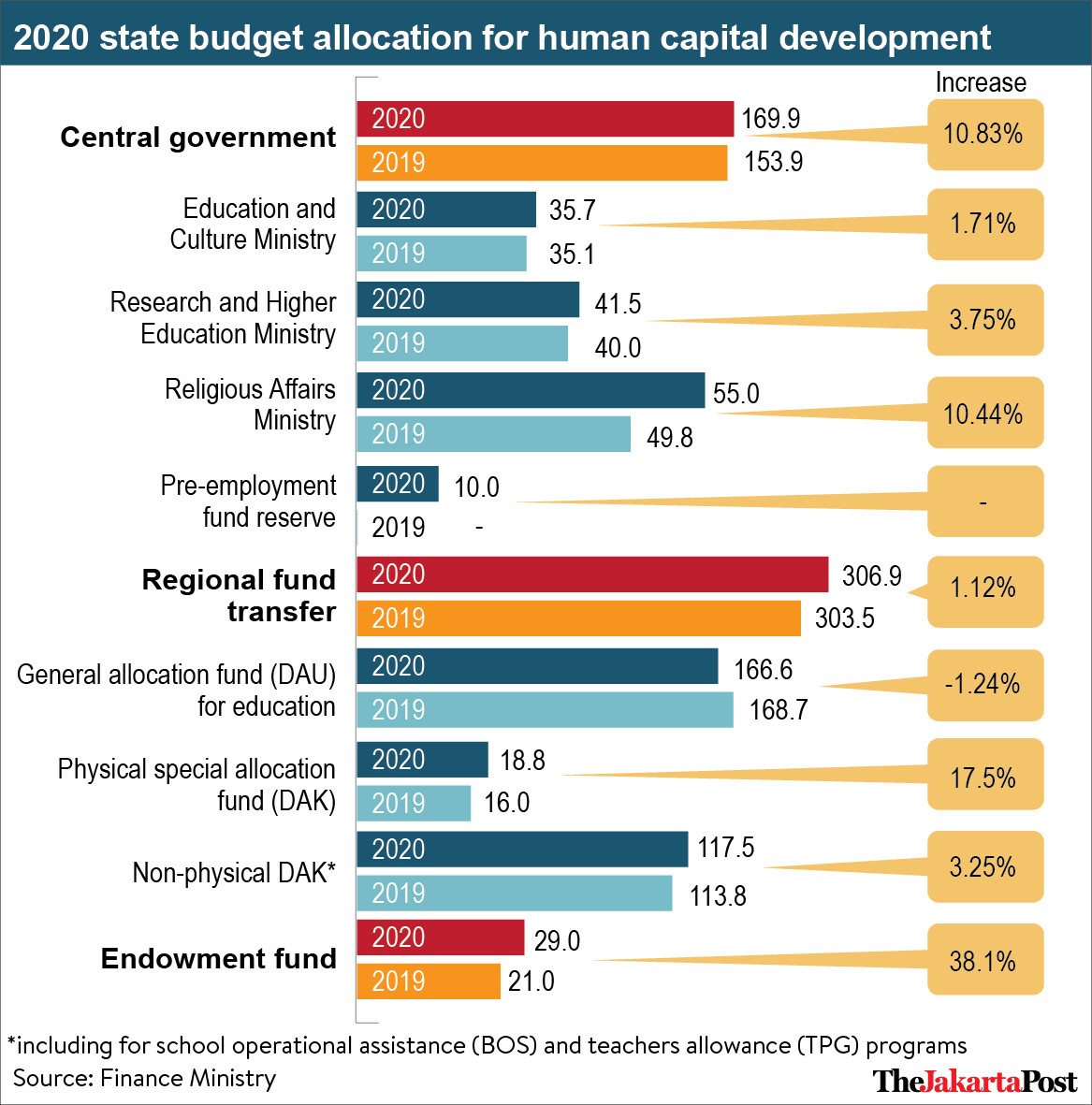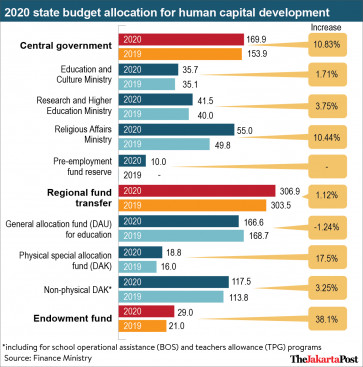Popular Reads
Top Results
Can't find what you're looking for?
View all search resultsPopular Reads
Top Results
Can't find what you're looking for?
View all search resultsBetter human capital 'key' to escaping lower middle-income trap, economist says
As of February, the number of Indonesia’s working age population had reached 196.46 million, up from 193.55 million in 2018 and 190.59 million in 2017.
Change text size
Gift Premium Articles
to Anyone
I
ndonesia may escape from the lower middle income trap that the country has faced since 1985 by improving its human capital through increased attention on the quality of education, an economist has said.
Former environment minister Emil Salim said there was now an unequal level of socio-economic development between regions in the country, in which many eastern provinces, such as East Nusa Tenggara, Maluku, Papua, West Papua and West Sulawesi, had low human development indicators. Therefore, Indonesia’s development programs should be focused on improving the quality of human resources massively, narrowing socioeconomic gaps between the country’s western and eastern provinces.
Two of Indonesia’s easternmost provinces, Papua and West Papua, suffered the greatest losses in human development, according to Emil. Citing the latest human development index (HDI) data, which covers the life expectancy index, literacy, quality education and standards of living for the period of 2010 to 2018, he said 25 out of 34 provinces had a HDI below the national average of 71.39, with Papua and West Papua as the lowest, standing at 60.06 and 63.74 respectively.
“This fact should have been able to move our hearts. Eastern Indonesia is now at the bottom. Let’s develop Maluku, Papua, West Papua and our other eastern areas. Indonesia is from Sabang to Merauke,” said Emil in his lecture to celebrate the 48th anniversary of the Institute of Research, Education and Information of Social and Economic Affairs (LP3ES) in Jakarta on Monday.
LP3ES researcher and economist Didik J.Rachbini, Indonesian Group for Economic and Social Development (Bineksos) chairman Ismid Hadad, Jakarta councillor-elect Jimly Asshiddiqie, senior politician Panda Nababan and LP3ES executive director Fajar Nur Sahid attended the event.
Highlighting its outstanding intellectual contributions in the field of economics and politics for almost five decades, Ismid expressed hope that LP3ES could continue to provide bold ideas to solve economic issues in the country.
Founded in 1971 by Bineksos with support from Friedrich Naumann Stiftung, he said, the LP3ES had contributed social and economic ideas and initiated a wide variety of activities, such as research, training and education services, at the grassroots to empower civil society so it could play a role in national development, especially in the field of economy, politics, culture and environment. “It remains in our concern that there should be alternative development initiatives, which apply a bottom up approach and can empower our communities to become self-reliant,” Ismid said.


















